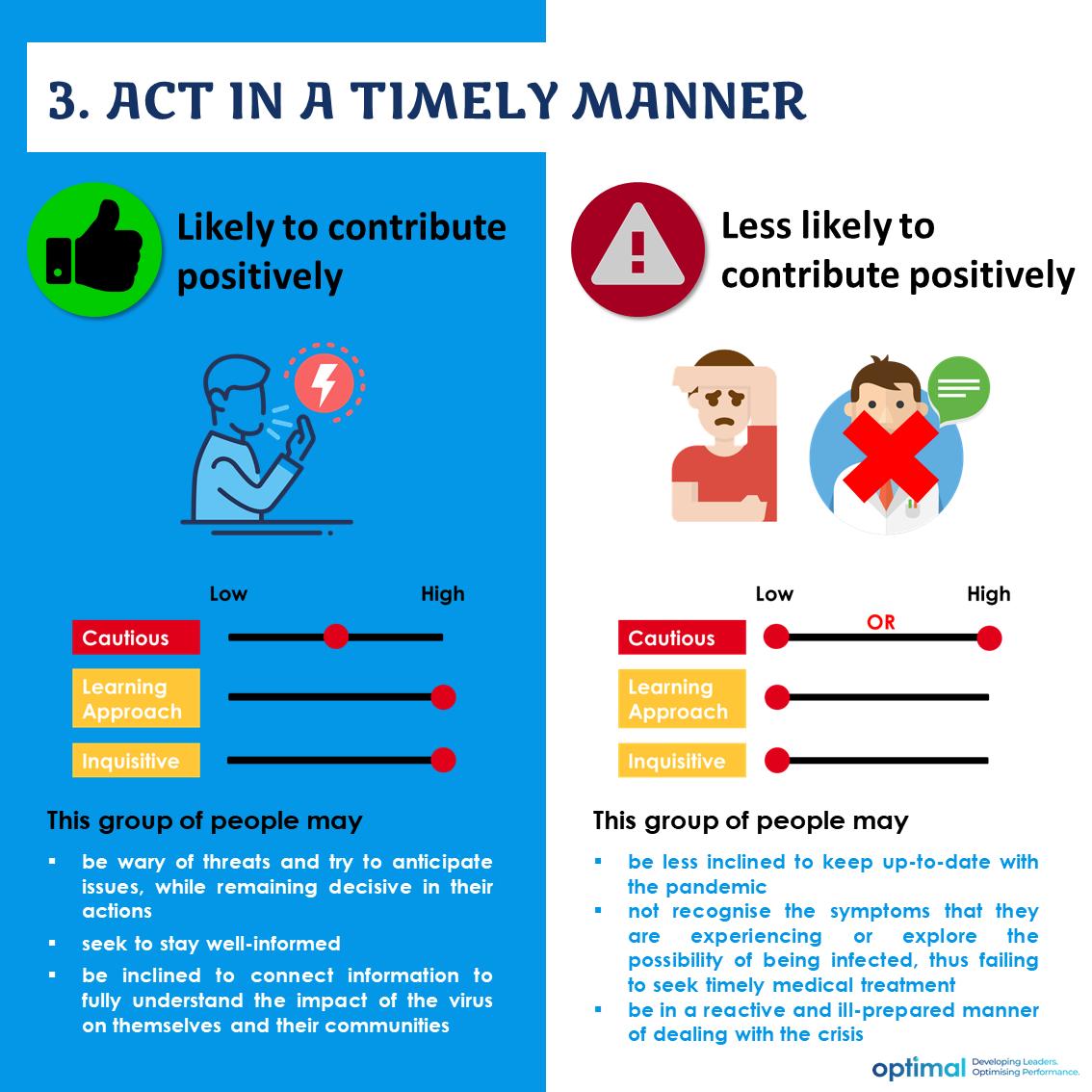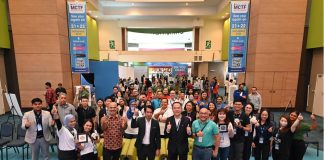The COVID-19 coronavirus has proved itself far more threatening than we initially assumed. Especially over the past few weeks where it has spread exponentially throughout the world. As a result, governments have rightfully implemented response strategies to overcome this pandemic. With measures ranging from partial or full lockdowns that are currently affecting one-third of humanity to aggressive virus testing and contact tracing in countries such as South Korea and Singapore, we can see that there is no one-size-fits-all approach.
Ultimately, it is human behaviour that is driving the situation; and for governments, the true challenge lies in managing people who have different motivations and personalities.
The Optimal Consulting Group (OCG) has recently released an article detailing their observations during the course of this ongoing crisis. They have identified five best practices that can be examined through the lends of individual differences in an effort to understand how and why different people are reacting to the coronavirus and the measures taken to combat it. Here is a brief summary of their findings.
Practicing Physical Distancing
Infectious diseases such as COVID-19 more often than not spreads from person to person. As such, physical distancing or social distancing would be a logical step to prevent further spread of the coronavirus. Many nations have implemented some form of lockdown, temporarily outlawing mass gatherings and advocating for remote working.

As seen in the graphic above, people who score low on sociability and affiliation tend to be known as “introverts”. These people rely less on social interaction to find fulfilment and are thus more likely to fit in with the self-isolation that the current situation demands. On the other hand, “extroverts” are the complete opposite, and will find it challenging to thrive in a world where social contact is now frowned upon.
Hence, hypothetically speaking, countries with more introverts should find that their people will take to social distancing more naturally than countries with predominantly extroverted people. In such a cases, they may need to implement more drastic stay-at-home orders to effectively enforce behaviour that go against the grain for the populace.
Take Social Responsibility
Physical distancing is quite closely linked to the wider idea of social responsibility, which is about acting in a manner that does not harm society. For example, if we take a look at the Patient 31 case in Korea, said patient was labelled a “super-spreader” after attending gatherings despite developing a fever. Within a week after her diagnosis, South Korea’s infection tally skyrocketed 30 times.

From that, we can deduce that Patient 31 and similar cases may be less motivated by altruistic values and may prioritise fulfilling their own immediate needs. Furthermore, they may have less interpersonally sensitivity, thus overlooking the impact of their actions.
On the other hand, higher altruistic and interpersonal sensitivity scores would suggest people who would readily adopt a socially responsible mindset given their natural inclination to act with the greater good in mind and with consideration for others.
This crisis is thus an opportunity for us to review the state of our society and our shared values in this interconnected world.
Act in a Timely Manner
Many countries have struggled to deal with COVID-19 due to a lack of knowledge and understanding of the novel coronavirus. However, this is not an excuse to delay action. Countries like Hong Kong, Taiwan, and Singapore have been lauded for their early efforts to contain the spread, driven by the urgency from lessons learned during previous disease outbreaks.

Responsiveness is key to staying one step ahead People who are somewhat cautious will be wary of threats and try to anticipate issues. These type of people may also score high in their learning approach and inquisitiveness to try and understand the full impact and extent of the virus on themselves and their communities.
Those who are not keen on learning may be less up-to-date with information on the virus and may not fully understand its symptoms or how it spreads. Furthermore, being too cautious or not cautious enough can be a detriment as well. He or she can either appear oblivious to the problems ahead when the score is too low, or seem hesitant to act when the score is too high.
Consequently, to manage such a populace, countries may need to ramp up their efforts to promote health literacy and introduce mass virus testing.
Comply With Measures
All the timely interventions and support won’t mean a thing if people are uncooperative and do not follow the rules. Italy, which is one of the worst affected nations today, saw large amounts of non-compliance during the early stages of their lockdown. This led to a major mitigation failure and even stricter rules and enforcement. Malaysia also reported only a 60 tom70 percent compliance rate when their MCO first went into effect in March 2020.

OCG believes that individual personalities are responsible for the rampant disregard for the rules. People with high prudence are attentive to the rules and regulations. These people would more than likely be very dutiful as well, thus making them more receptive to authority figures and healthcare experts. Lastly, these people have a need for security, valuing order and stability in their lifestyles, and will be motivated to ensure that they remain safe amid such uncertain times.
By contrast, those that score low in all three of these areas are likely to disregard advice to stay at home and not diligently observe safe distancing rules. Even when measures are enforced, they are likely to remain defiant in the face of authority.
Take it Seriously
It should be clear by now that the COVID-19 outbreak will cast a shadow throughout most of 2020, with long term impacts on many aspects of society. While it is good to remain optimistic, we should not underestimate the virus and the threats it poses. Unfortunately, many still adopt a complacent attitude and do not take adequate precautions to protect themselves and others.

Excessive positivity with regards to COVID-19 can be attributed to high levels of boldness, mischievousness, and hedonism. Most of these people consider themselves healthy and may overestimate the abilities of their immune systems. With a sense of invulnerability, they seek out fun and adventure in a social settings, increasing exposure to the virus.
While the above group may think themselves invincible, it does not mean people on the opposite end of the scales feel highly vulnerable. Instead, they are the people who view the pandemic seriously. They are inclined to regard the virus as a valid threat to their health, and will acknowledge that they are also at risk of being infected.
The continuing fight against COVID-19 is a daunting trial that are putting government abilities to the test and straining healthcare systems to their limit. Similar to how companies need to manage their employees to beat their competition, governments need to manage their citizens to emerge victorious against the pandemic.
OCG’s full article can be found here.





































